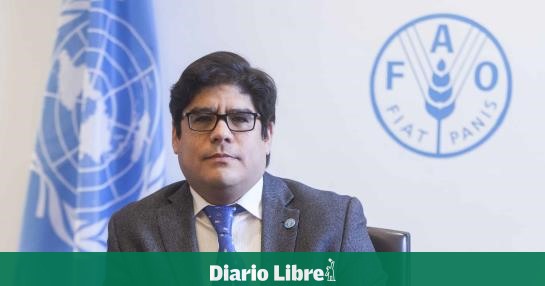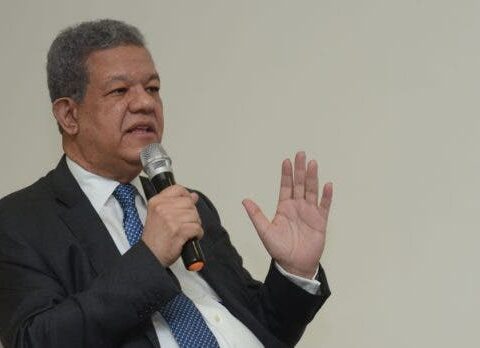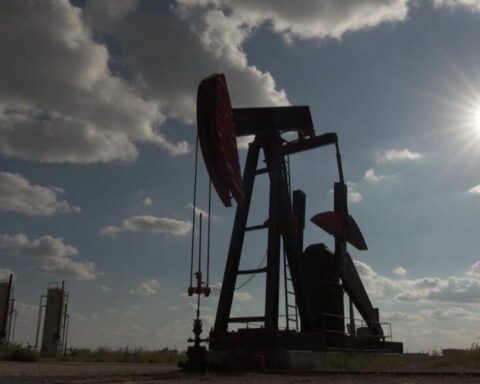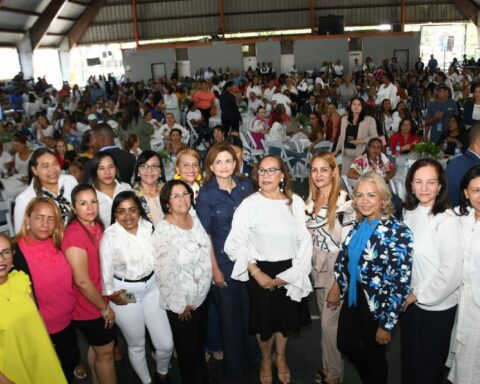The Food and Agriculture Organization of the United Nations (FAO) warns that the Dominican Republic must prepare for a prolonged escalation of prices in the food. This is due to the dependency on the import of some food.
Rodrigo Castaneda, representative of the FAO in the Dominican Republic, considers that the scenario provides an opportunity to strengthen the country’s food self-sufficiency and integrate small and medium producers into institutional markets such as hospitals, tourism and school meals.
—What is the situation with the increase in food prices at the international level?
The FAO He had been warning about this escalation in prices for some time. The prices of food they were already high before the war in ukraine and the figures of the monitoring report of FAO they confirm it. In March, the international prices of raw materials for food They accumulated a 12.6 percent increase compared to last February of this year, reaching their highest level since 1990.
The war conflict aggravated the post-pandemic situation, but the most worrying thing is the complications that it will bring for the next harvest seasons. The FAO is warning thatthe most serious problem is not this year”but “the harvest of the next”, and that “it will affect all the countries of America”.
Today we cannot say with certainty that a food crisis situation cannot occur in the region.
– To what do you attribute this rise?
It is a combination of factors. It is fundamentally explained by international logistics problems due to the increase in energy costs, which has a very direct impact on the farming and now for the war in ukraine.
Ukraine and Russia are two major grain producers, producing 30 percent of global wheat exports. Sunflower oil exports from both countries combined accounted for 55 percent of world supply. In addition, Russia is the main producer of fertilizers, which has registered significant increases. The uncertainty in the market is because you don’t know if these countries will be able to continue harvesting and exporting in the coming months. For example, the scenario would be even more complex if the infrastructure of key ports for the departure of exports from these two countries is affected.
—What are the products that have risen the most?
Corn, wheat and vegetable oils. For example, the price of cereals in general increased by 17.1 percent compared to February, and the international price of wheat and corn rose a little more than 19 percent during the past month, with corn reaching an all-time high. . Another important increase is the rise in the price of sunflower oil, which was around 23.2 percent, since Ukraine is the world’s leading exporter of this product. Sugar, for example, rose 6.7 percent.
—How does this scenario affect the Dominican Republic?
All the countries of the region will be affected and the Dominican Republic does not escape this context. According to the Central Bank, the item of Food and Non-Alcoholic Beverages was one of the most influential in general inflation with a rise of 1.18 percent compared to last month. In general, this trend will continue. the country must prepare for a prolonged price escalation. Being an island, we depend on the importation of some food that are not produced here, but, above all, from agricultural inputs such as fertilizers, which is the central factor in this equation.
Most likely, the price of food will increase strongly, especially wheat and corn. Even if the country does not buy wheat or corn from Russia or the Ukraine, all international prices rise in the same way, it does not matter if you buy from the United States or Argentina or Brazil, they will still sell you at the highest international price.
—How does the situation impact the country’s food security?
We have three crises happening at the same time: economic effects of the pandemic, climate change, and now effects of the war. It is not easy to handle a moment like this.
Unemployment, inflation and household poverty (today at 23.85 percent) meant that we also have more people who do not achieve food security. The last measurement of FAO records that, as an effect of the pandemic, there are more than a million people in a condition of hunger.
But it is important to remember that we are hungry not for lack of food, since there is sufficient production in the country, but because of the lack of money of people who are in conditions of poverty or very close to the poverty line. Also, if they food are more expensive, makes people abandon the food more nutritious, which is why we also have an increase in overweight and obesity.
“We are hungry not for lack of food, since there is sufficient production in the country, but for lack of money”FAO Representative in the Dominican Republic
There, our call is very clear: governments have to maintain the social protection programs that were put in place during the pandemic. Programs such as Supérate, Inabie’s school feeding program, are fundamental to maintaining food security levels.
The initiative of Inespre and the supermarkets is very interesting because it is aimed at guaranteeing food safety (access to food). The private sector must also contribute to finding solutions from the market.
—What challenges does the country have?
We have to rethink the agri-food system that is highly dependent on fossil fuels, fertilizers and external inputs. It is an opportunity to accelerate the transition towards more sustainable and resilient systems. In the case of fertilizers, for example, Brazil and Mexico have just launched national strategic plans to reduce their dependence on fertilizer imports and strengthen national production, in addition to promoting good agricultural practices that increase efficiency in the use of fertilizers. fertilizers, and avoid waste given this scarcity. This requires more research and training at the level of producers and public institutions.
In the country the FAO is evaluating, together with the Ministry of Agriculture, the adoption of alternatives for fertilizers with innovation, technology and the use of organic practices. And something very important, reduce the use of harmful and obsolete pesticides for healthfor a transition to an integrated management of organic pesticides.
—What opportunities are presented for the Dominican Republic?
It is an excellent scenario to strengthen food self-sufficiency, the Dominican Republic is high in production, but very dependent on imported inputs. But the most important thing is to consolidate markets for the national production of foodwhich is of good quality. But it needs technical and financial support.
I always say it, there is an enormous possibility of integrating the production of small and medium family farmers, cooperatives and micro and small agricultural companies, to institutional markets such as school meals, hospitals and tourist chains.
We have an opportunity to generate new income by linking that high-quality production of small farmers to tourism chains. But it needs a will on the part of the private sector. We are currently exploring the launch of pilot product initiatives Kilometer Zero with hotels and restaurants in the country. Imagine being able to offer a fresh food, on the plate of the tourist, who traveled a minimum number of kilometers before reaching the plate.
—The Executive Power promotes a bill that seeks to tax the customs tariff on various import items at zero rate. How does the FAO evaluate this measure and if it is considered sufficient?
It is a timely measure, its efficiency will depend largely on the control mechanisms, the regulations and implementation criteria of that law. But without a doubt, it is necessary to have a set of policy measures to facilitate access to food at a cheaper price than it is today, which guarantees food safety every day. If it is not that law, you have to look for another. It is at this time that agreements need to be reached for these support measures to exist.
In general, the FAO has recommended keeping markets open, it is vital not to put obstacles in the way of international trade in food and facilitate flow in supply chains. In addition to diversifying and expanding food supplies, support vulnerable groups, specifically those sectors that were already vulnerable before the escalation of the war.
We must remember that the producers of food they are also consumers of these. A significant percentage of these small producers are vulnerable families, who need to obtain supplies from other food that they cannot produce. It must be ensured that everyone, producers and consumers, exercise their right to food.








